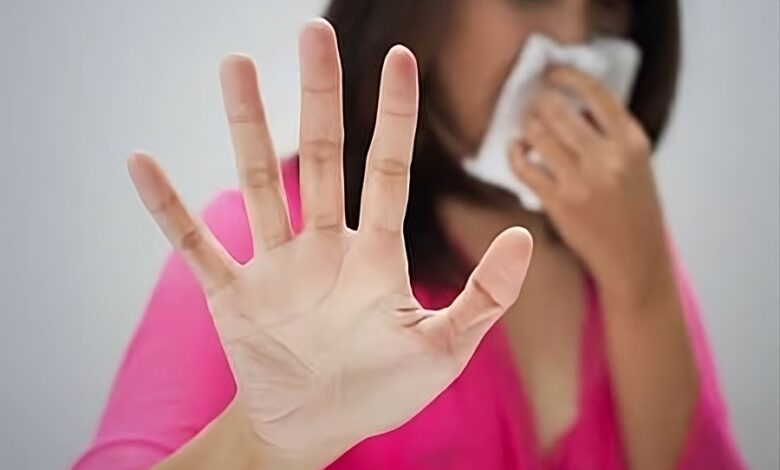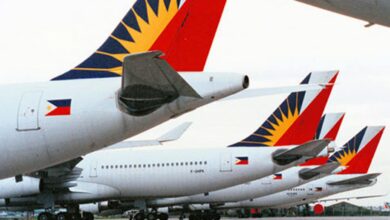From Coughs to Contagion: Why Airlines Should Stop Making Sick Passengers Fly

[ad_1]
From Coughs to Contagion: Why Airlines Should Stop Making Sick Passengers Fly
People are flying sick and spreading viruses and it’s probably the thing I hate most about air travel. I once sat next to a passenger on United Airlines with bright glowing eyes and wound up with a viral infection of my own eye. Was it really that hard to stay home?
One passenger reports flying Southwest Airlines from Baltimore to Las Vegas and a passenger started freaking out. The woman declared she wouldn’t get on the plane, because the man waiting to board in front of her was coughing.
Now, to her credit it was COVID-like, strong hacking. To his credit, he was doing all the right things like covering his mouth with his arm and at point, turned his head to the side to cough outside the plane.
He disappears into the plane, but she won’t move forward, continuing her rant of not getting on the plane. …Finally, she advances towards the plane through the mythical mystery mist.
She freaked out, but she flew anyway. We don’t know if she got sick. Maybe that passenger had COPD, and wasn’t patient zero of a new H5N1 epidemic.
But people flying sick has been a problem for a long time. Some of that is because of airline policies – it’s costly to change your plans, and a doctor’s note won’t even help you. Much of it is more broadly cultural. We expect people to ‘tough it out’ and colleagues don’t want us to ‘let them down’.
American Airlines has a policy where employees rack up disciplinary points for missing work even when they’re taking sick days provided for in their contracts. As a passenger I don’t want to be on a plane with sick passengers and I don’t want to be on a plane with sick crew. I was even a fan of ‘double masking’ long before SARS-CoV-2!
Airlines need to sell facemasks inflight. Guy next to me hasn’t stopped coughing all flight. I’d gladly buy him one. Or two.
— gary leff (@garyleff) March 6, 2016
Airline policies and broader work policies and cultural practices make other people sick. The pandemic makes this all more top of mind but it’s been an issue for a long time, we’re just now open to thinking about it and re-thinking it.
My boss (at my day job) thinks sick days should pay more than work days, so that people take their sick days.
- Some people will take sick days for other reasons, and still work when they are sick.
- But if even some people use their sick days when they are sick that’ll reduce workplace transmission of illness.
- The idea is to get people to use their sick days, and eliminate the stigma against calling in sick. Taking sick days becomes rewarding, rather than a sign of weakness.
Employers can reduce pay for non-sick days slightly to compensate so that the total compensation package doesn’t change. The idea doesn’t have to be about paying workers more, just about changing the incentives and culture around going to work sick.
How do we do this for airlines? U.S. airlines have generally eliminated change fees, but basic economy tickets don’t offer these, and reports are that Southwest is considering no changes (at any price) on their cheapest tickets.
If a basic economy passenger is sick, and doesn’t want to expose other passengers and crew to their germs, they’re stuck taking a financial loss. We’re pushing a strong incentive for passengers to sprad disease on planes. And even if planes themselves have good airflow and filtration, gate areas and security checkpoints often do not.
Shouldn’t airlines be screening people for illness – workers and passengers – in order to protect others? I’d fly an airline that did a better job proving me with a safe environment. And pandemic-era enhanced cleaning measures should have stayed around post-pandemic. There was a lot of cleanliness theater during Covid-19 but disinfecting is highly protective against many viruses. At least people should now feel comfortable wearing masks as a choice, in ways that seemed weird prior to Covid. Don’t shame them for it.
Before the pandemic the CDC actually recommended foregoing travel if you had a fever over 100 degrees and other symptoms, but a fever alone wasn’t reason to cancel a trip in their medical opinion. And about half of people said they’d fly even if they had the flu. That really needs to change.
More From View from the Wing
[ad_2]
Source link




